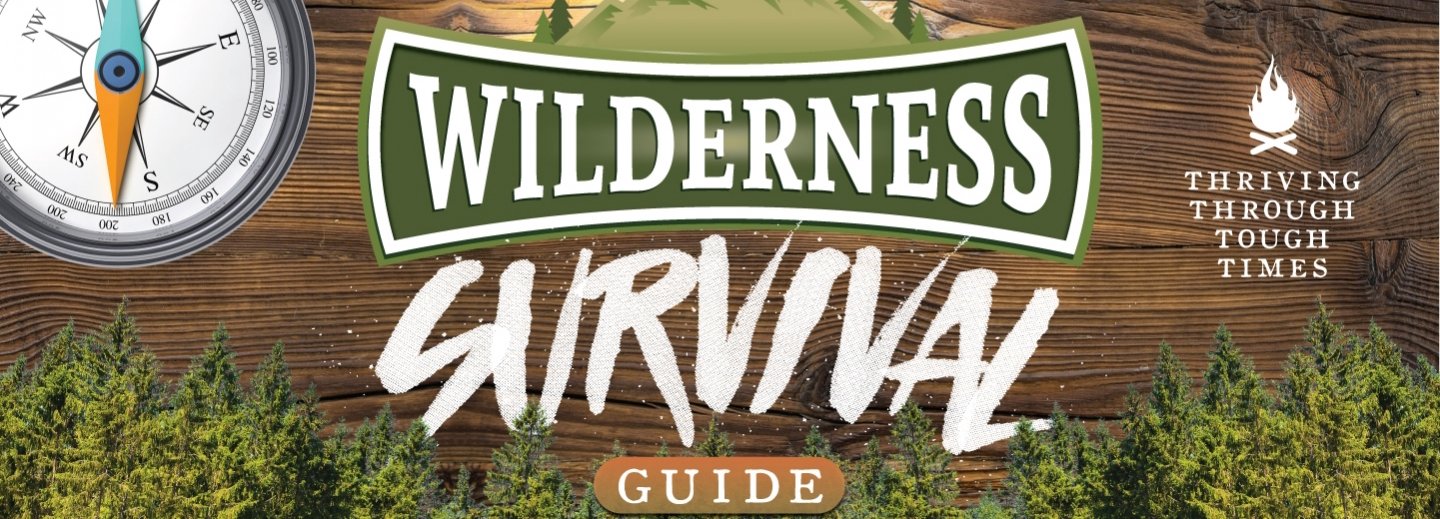TIP #5: DRINK WATER
Daniel Kolenda
Hydration is essential to survive a natural wilderness. It is also essential to survive a supernatural wilderness. Just as drinking clean water is urgent in hot, dry weather, we must drink in God’s presence during desert seasons. “You, God, are my God, earnestly I seek you. I thirst for you, my whole being longs for you, in a dry and parched land where there is no water” (Psalm 63:1). Survival experts even warn us not to wait till we feel thirsty, but to drink as much as possible to keep the hydration level of our bodies high. Likewise, it is critical that those in a spiritual wilderness constantly be filled with God’s Spirit. “Everyone who drinks this [natural] water will be thirsty again, but whoever drinks the water I give him will never thirst” (John 4:13-14).
God’s provision for Israel in the wilderness applies to us today: “all drank the same spiritual drink, for they were drinking from a spiritual rock which followed them; and the rock was Christ” (1 Cor. 10:4). Our refreshment in the wilderness is God’s presence, and God’s presence is the Holy Spirit. Just as the Holy Spirit is our comfort, shelter, and fire, so also is He, like water, the essence of life for our whole being. Jesus said, “If anyone is thirsty, let him come to Me and drink. He who believes in Me, as the Scripture said, ‘From his innermost being will flow rivers of living water’” (John 7:37-38).
Scripture often relates the Holy Spirit to water. Joel declares Israel’s future restoration by reminding them that God “has poured down for you the rain, the early and latter rain as before” (Joel 2:23). He then transfers this image to the gift of the Spirit: “I will pour out my Spirit on all people” (Joel 2:28). When Joel’s prophecy was fulfilled on the day of Pentecost, it says that the disciples were “all filled with the Holy Spirit” - as if with water - “and began to speak with other tongues as the Spirit gave them ability to speak” (Acts 2:4).
If God’s “liquid” presence is the Spirit, how then can we “drink” or “be filled with” His Spirit? How can we remain “hydrated” by the Spirit’s presence while crossing a dry spiritual landscape? We do this by praying in the Spirit. Listen to what Paul told Christians in the midst of intense battle: “Through every kind of prayer and petition, pray at all times in the Spirit” (Eph. 6:18). And Jude tells believers facing trouble, “You, beloved, keep yourselves in God’s love by building yourselves up on your most-holy faith, by praying in the Holy Spirit” (Jude 20-21).
How, then, do we pray in the Spirit? We pray in the Spirit when we connect with His presence, partner with His leading, and permit Him to empower our prayers. When we follow His leadership, He not only shows us the right things to pray, but also gives us the energy to pray them (Rom. 8:26-27). The important thing is to allow His expressions - His feelings and “language” - to mesh with our feelings and language. That is praying in the Spirit.
The Spirit expresses Himself through us in several ways. He praises and thanks God with many different kinds of songs (Eph. 5:18-19). Sometimes He makes groans too deep for words (Rom. 8:23). He may cry out with affection and childlike need for God as our “Abba” (Gal. 4:6), or declare Christ’s awesome Lordship over an impossible situation (1 Cor. 12:3). The Spirit’s bank of prayer language contains deep adoration of God’s majesty and Christ’s sacrifice (Rev. 4-5), as well as pleas for Jesus to return (Rev. 22:17). The Holy Spirit has a broad treasury of language for every kind of situation and emotion we may face. My point is this. Praying in the Spirit means getting close to Him, sensing His mood, hearing His voice, and cooperating with His specific expression in any given moment.
But there’s one expression of the Spirit I want to spotlight, since it most effectively refreshes us in the desert. That expression is praying in tongues. “The person speaking in an unknown tongue edifies himself” (1 Cor. 14:4). Praying in tongues by the Spirit is an unobstructed connection to God’s hydrating power in the wilderness. It enables us to pray in a way that’s not restricted by our understanding or limited by our native language. “For one who speaks in a tongue does not speak to men but to God; for no one understands him, but he utters mysteries in the Spirit” (1 Cor. 14:2).
Unknown tongues may not help a gathering of believers (since no one understands the one speaking), but it greatly helps the individual who needs potent spiritual rehydration.
This is because praying in tongues edifies the person praying. The verb, “edify,” means more than “encourage.” The original word actually means, “to construct, strengthen, or restore.” In other words, through speaking in tongues, the Spirit not only encourages our hearts, but also builds our inner person. He takes the blessings we inherited when we believed (Eph. 1:3), and progressively connects them to assemble us into powerful people. So praying in the Spirit, praying in other tongues, fortifies us. It constructs and strengthens us in the desert.
Consider how powerful it is when we pray in our native language. The Bible teaches that when we pray heavy burdens off our chest, God replaces them with supernatural peace (Phil. 4:6-7). Also, praising God amid our problems, when breakthrough comes, brings joy to our hearts. That joy then becomes our strength, even if the problems persist (Neh. 8:10). Now what if we were able to intercede or praise from places too deep for our conscious mind to access? What if we were able to pray prayers we needed to pray, but could never articulate in our native language?
This is what praying in tongues does for us. It enables us to pray straight from our spirit without the limits of our mind. “For if I pray in a tongue, my spirit prays, [though] my mind is unfruitful” (1 Cor. 14:14). Such praying is not only free of blockage and carnality, but it’s also laser-accurate. When God answers these prayers, or when we experience the rapture of this praise, we receive measures of peace, joy, and strength that can come no other way. These are the virtues that fortify us from within, filling us with “streams in the desert” from the internal springs of the Spirit. They enable us to range the desert as healthy, creative people full of faith and spiritual vitality for others.
If you’re in a spiritual desert, keep yourself hydrated. Drink deeply and often of your internal resources by praying in the Spirit. Allow Jesus to baptise you in the Holy Spirit, or rediscover the depths of such a wonderful immersion in His presence. By faith, open your mouth and allow the Spirit to give you utterances that your mind doesn’t understand. Develop the habit in the desert that will always keep you saturated with God. It will quench your thirst, fortify your soul, and keep you from spiritual dehydration during dry times.
Whether you’re facing a wilderness or have in the past. Order today Daniel Kolenda’s ‘Wilderness Survival Guide’ Combo Pack - as a spiritual “Survival Guide” for the desert — the supreme source of wisdom both for enduring the wilderness, as well as navigating safely through it to God’s promised destination.
Click the link above to order the combo pack!





